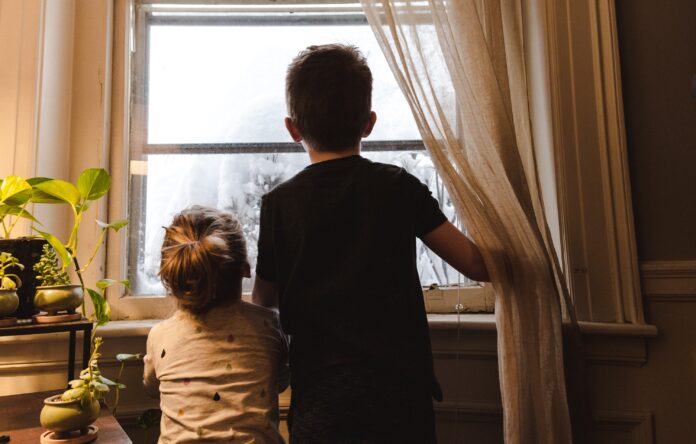This poem stood out to me because it looked on the bright and hopeful side of something that is otherwise a very difficult and sad situation. As a designer, it is important to look at the opportunities that come out of situations like these. Even though kids may not be getting taught what they normally would in the classroom, they have a rare opportunity to learn important life lessons that many of us never had exposure to as a kid.
It is also really important to consider the people that did not respond positively to this poem. Not all parents have the time, especially now, to spend a lot of time with their family and create unique learning experiences with their children. They may be struggling just to get food on the table every night. Even if they are doing all they physically and emotionally can, they may not feel like they’re doing enough. How might we design something to ease some of the stress of these parents and remind them that they are doing their best, no matter what their situation is?
—
Selinger-Morris, Samantha. “A Viral Poem is Helping Parents Through COVID-19. But Some Disagree.” The Sydney Morning Herald, 28 April 2020, https://www.smh.com.au/lifestyle/life-and-relationships/a-viral-poem-is-helping-parents-through-covid-19-but-some-disagree-20200424-p54n24.html.
“The poem, titled What If Instead Of Behind These Kids Are Ahead, was published on a blog by American mother of two Jaime Ragsdale, who has said that she posted it on social media after seeing countless “discouraging” messages concerned that the coronavirus is creating a big learning gap due to missed schooling.”
What If Instead Of Being Behind These Kids Are Ahead?
What if, instead of falling behind, our kids are advanced?
What if they have more empathy, they enjoy family connection, they can be more creative and entertain themselves, they love to read and express themselves in writing?
What if they enjoy the simple things, like their own backyards and balconies, sitting near a window in the quiet?
What if they notice the birds and the dates and different flowers emerge and the calming renewal of a gentle rain shower?
What if our kids are the ones to learn to cook, organise their space, do their laundry and help keep a well run home?
What if they learn to stretch a dollar and live with less?
What if they learn to plan shopping trips and make meals at home?
What if they learn the difference between want and need?
What if they learn the value of eating together as a family and finding the good in sharing the small delights of every day?
What if they are the ones who place great value on our teachers and educational professionals, librarians, public servants and the previously invisible essential workers like truck drivers, grocers, cashiers, healthcare workers… just to name a few who are taking care of us right now while we are sheltered in place?
What if among these children a great leader emerges who had the benefit of a slower pace and simpler life to truly learn what really matters in life?
What if they are ahead?
By Jaime Ragsdale
“The poem, which has divided opinion, suggests that our children might actually benefit from this time of profound stress and loss; that it might teach them to enjoy simple pleasures, develop greater empathy, and value the “previously invisible essential workers”
“But not everyone is celebrating the What If poem.
“Dr Katie Waters, a Melbourne clinical psychologist who specialises in treating children and families, understands both sides of the argument.
“’Not all parents can manage to deliver all this beauty in home isolation, and I don’t think they benefit from someone else telling them all the other things they haven’t managed to get their kids to do yet [like] doing the colouring activity from the local artist’s Instagram page,’” she says, noting that many families have parents who have lost jobs or are, alternatively, working more hours than ever before.”




